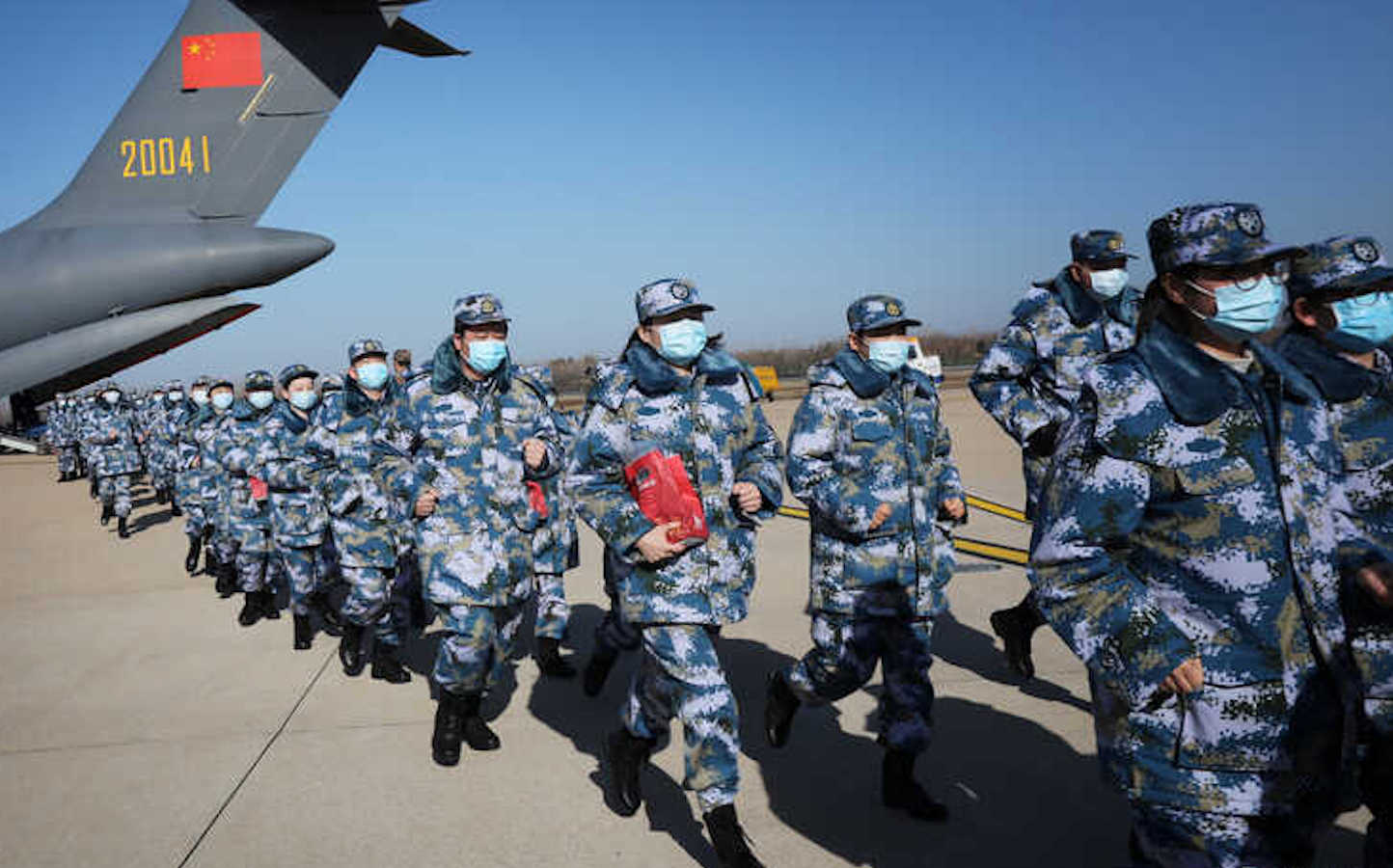(ATF) The State Council of China’s Central Committee has published some of the key points of the upcoming meeting of the 13th National Committee of the Chinese People’s Political Consultative Conference being held in Beijing on Thursday May 21 – and it will focus on a “New Era” and developing China’s western regions.
These regions are relatively underdeveloped except for the extraction of gas, oil and minerals. The largest minority population, the Uighurs, has been severely oppressed by political and military forces after long-running claims for independence. China has also expanding its influence into the former Soviet republics neighbouring the Xinjiang region.
In a 33-point list of guidelines, the much-vaunted Belt and Road Initiative (BRI) was well down from top priorities – below poverty alleviation, maintaining social order and talk of building and expanding deep-sea ports in China and abroad. That suggests the BRI scheme is now being downplayed.
Also, a project to establish a national first-class port in inland areas is underway. The establishment of Chengdu International Railway Port Economic Development Zone is progressing “according to procedures.”
The document states the task of maintaining national unity, social stability, and national security is still arduous due to shortcomings and weak links in achieving socialist modernisation. But there was no specific mention of who or what the “weak links” are.
The guidelines state that China now faces a “new landscape.” Given this, it appears the CCP leaders main ideology has moved from Xi’s “China Dream” to a new socialist outlook focusing on the “new era.” This appears to mostly involve implementing the overall national security concept, with a strong focus on high tech. Although not mentioned in this document, China announced plans earlier to increase its nuclear arsenal. There has been considerable controversy and opposition to China’s claims in many contentious border areas, notably with India, Japan, plus Vietnam, the Philippines and others over its claim to the bulk of the South China Sea.
In a less belligerent tone, the document proposes building a well-off society in an all-round way across the whole country by 2035. This will be attained in part by deep support for mass entrepreneurship and innovation, promoting high-quality development in the western region, and an upgraded version of “Double Innovation”. The government will support the National Science and Technology Achievement Transformation Guidance Fund to set up a venture capital sub-fund in the country’s west.
The party will optimise coal production and consumption – promoting “clean coal” and intelligent and efficient mining, while promoting the classification and gradation of coal, and upgrading trial technologies such as coal to oil, coal to gas and coal to olefins. Construction of a number of oil and gas production bases is also planned. National leaders also want to accelerate exploration, development and utilisation of coal bed methane.
China will also cultivate a batch of “clean” energy bases.
It also plans to create segmented Internet areas such as “Internet + Education”, “Internet + Medical (Health)”, and “Internet + Tourism”. The government wants to boost the speed of networks and to reduce the fee for use, plus accelerate the development of cross-border e-commerce.
The State Council document, which is very long, focuses on its theme to develop ‘the west’ and promises a massive bouquet of new industrial zones, better care for the elderly with better housing security, among other issues.
It signals a change in direction somewhat, as the country deals with the coronavirus and ongoing international tensions. It appears to be a more inward-looking and politicised “New Era”, as the world comes to grips with the new normal.
The CPPCC – the consultative talking shop conference – began on Monday May 18, and it will be followed by the Central Committee meeting on Thursday, which is expected to give a rubber stamp to the initial body’s recommendations. Several important statements are expected during this period.
























